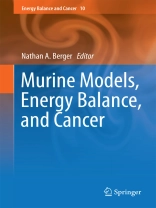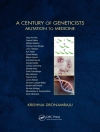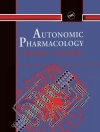This volume provides a transdisciplinary and translational review of many of the leading murine models used to study the mechanisms, mediators and biomarkers linking energy balance to cancer. It provides a review of murine models that should be of interest to basic, clinical and applied research investigators as well as nutrition scientists and students that work in cancer prevention, cancer control and treatment.
The worldwide obesity pandemic has been extensively studied by epidemiologic and observational studies and even, in some cases, by randomized controlled trials. However, the development and control of obesity, its comorbidities and its impact on cancer usually occurs over such long periods that it is difficult, if not impossible to conduct randomized controlled trials in humans to investigate environmental contributions to obesity, energy balance and their impact on cancer. In contrast, model organisms, especially mice and rats, provide valuable assets for performing these studies under rigorously controlled conditions and in sufficient numbers to provide statistically significant results. In this volume, many of the leading and new murine models used to study the mechanisms and mediators linking cancer with obesity, sleep, exercise, their modification by environment and how they may continue to be used to further elucidate these relations as well as to explore preclinical aspects of prevention and/or therapeutic intervention are considered. This volume provides an important compilation and analysis of major experimental systems and principles for further preclinical research with translational impact on energy balance and cancer.
Cuprins
Relevance of Circadian Rhythm in Cancer.- Environmental Manipulation and Neuropeptide Effects on Energy Balance and Cancer.- The MRL Mouse: A Model of Regeneration and Cancer.- Living Large: What Mouse Models Reveal about Growth Hormone and Obesity.- Mouse Models to Study Obesity Effects on Hematologic Malignancies.- Energy Balance, IGF-1 and Cancer: Causal Lessons from Genetically Engineered Mice.- Mouse Models to Study Leptin in Breast Cancer Stem Cells.- Mouse Models used to study the effects of Diabetes, Insulin and IGFs on cancer.- Impact of Energy Balance on Chemically Induced Mammary Carcinogenesis in the Rat.- Models and Mechanisms of High Fat Diet Promotion of Pancreatic Cancer.- Maternal energetics and the developmental origins of prostate cancer in offspring.- Mouse Models to Study the Effect of Natural Products on Obesity Associated.- Mouse Models to Study Metformin Effects in Carcinogenesis.
Despre autor
Nathan A. Berger is a Distinguished University Professor. He is the Hanna-Payne Professor of Experimental Medicine, Director of the Center for Science, Health and Society. He is Professor of Medicine, Biochemistry, Genetics and Oncology at Case Western Reserve University, School of Medicine. Dr. Berger is a member of many professional societies including the American Society of Hematology, American Society for Biochemistry and Molecular Biology, American Society of Clinical Oncology, American Association for Cancer Research, American Society of Clinical Investigation, and the Association of American Physicians. Dr. Berger serves on many national peer review panels and committees for the National Cancer Institute. He has published over 200 scientific papers and has received 5, 443 citations.












